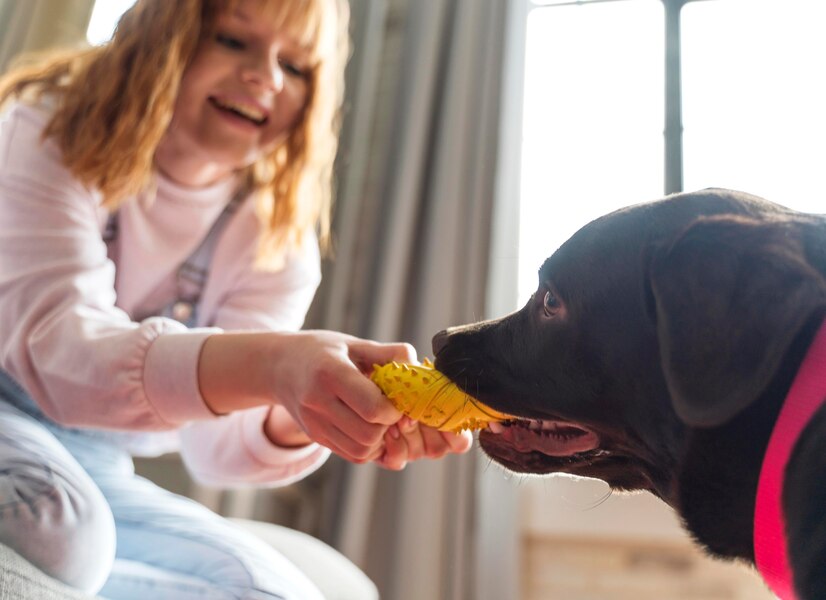Choosing the right drug rehab center is a crucial step in the recovery journey, and for many, the presence of a beloved pet can make a significant difference. In Los Angeles, several rehab centers offer pet accommodations, recognizing the therapeutic benefits that pets can bring during the recovery process. This guide explores the advantages of pet-friendly rehab options and provides insights into finding the right facility for your needs.
Understanding the Role of Pets in Recovery
Pets can play a vital role in the recovery process by offering unconditional love, companionship, and emotional support. They can help reduce feelings of loneliness, anxiety, and stress, which are common during addiction treatment. The presence of a pet can also create a sense of normalcy and stability, providing comfort during challenging times.
Research has shown that interacting with pets can lower cortisol levels (a stress hormone) and increase the production of endorphins, which promote feelings of well-being. This emotional support can enhance the effectiveness of traditional treatment methods, making the recovery process more manageable and less isolating.
Overview of Drug Rehab Centers in Los Angeles with Pet Accommodations
Los Angeles offers a range of drug rehab centers that cater to individuals who wish to bring their pets along during their treatment. These centers provide specialized programs that integrate pet care into the recovery process, allowing clients to benefit from their pets’ presence while receiving comprehensive addiction treatment.
Pet-friendly rehab centers in Los Angeles are designed to accommodate both pets and their owners, offering amenities and services that ensure the well-being of both. These facilities understand the unique needs of clients with pets and provide a supportive environment where both can thrive.
How Pets Contribute to Emotional and Psychological Healing
Pets contribute significantly to emotional and psychological healing by offering companionship and reducing feelings of isolation. Their presence can provide comfort and stability, helping clients feel more secure and grounded during their recovery. Pets also encourage physical activity and routine, which can be beneficial for mental health and overall well-being.
Moreover, caring for a pet can give individuals a sense of purpose and responsibility, which can be particularly valuable during early recovery. The bond between a person and their pet can foster positive emotional connections, reduce symptoms of depression and anxiety, and promote a sense of normalcy.
Key Features to Look for in Pet-Friendly Rehab Centers
When choosing a pet-friendly rehab center, it’s essential to consider several key features:
- Pet Accommodations: Ensure the facility has appropriate accommodations for pets, including designated areas for exercise, feeding, and medical care.
- Qualified Staff: Look for centers with staff trained to manage both client and pet needs, including veterinary care and pet behavior.
- Safety and Cleanliness: Check that the facility maintains a clean and safe environment for both pets and clients.
- Integration of Pets in Therapy: Find centers that incorporate pets into therapeutic activities and support the emotional well-being of clients.
These features contribute to a positive experience for both clients and their pets, enhancing the overall effectiveness of the treatment program.
The Process of Integrating Pets into Drug Rehab Programs
Integrating pets into drug rehab programs involves a thoughtful approach that balances the needs of both clients and their pets. The process typically includes:
- Assessment: Evaluating the suitability of pets for the rehab environment, including health and behavioral assessments.
- Orientation: Introducing pets to the rehab facility and ensuring they adjust well to the new environment.
- Coordination: Coordinating with veterinary professionals to manage pet health and care during treatment.
- Incorporation: Incorporating pets into daily routines and therapeutic activities to maximize their benefits in the recovery process.
This structured approach ensures that pets contribute positively to the recovery journey while receiving the necessary care and attention.
Benefits of Having Pets During Detoxification and Early Recovery
During detoxification and early recovery, pets can provide significant emotional support and stability. They help alleviate feelings of stress and anxiety that often accompany these challenging phases of treatment. The companionship of a pet can offer comfort and distraction from cravings, helping individuals stay focused on their recovery goals.
Pets also encourage routine and physical activity, which are important for maintaining overall health and well-being. Their presence can create a calming effect, making the detoxification process more manageable and less isolating.

How Pet Therapy Enhances Traditional Treatment Methods
Pet therapy enhances traditional treatment methods by adding a layer of emotional and psychological support. It complements evidence-based therapies such as cognitive-behavioral therapy (CBT) and group therapy by providing additional comfort and reassurance. Interacting with pets can improve mood, reduce stress, and foster a sense of connection and support.
Pet therapy can also facilitate social interactions and improve communication skills, which are essential for successful recovery. By integrating pets into the treatment process, clients receive a holistic approach that addresses both emotional and psychological needs.
Addressing Common Concerns and Misconceptions About Pets in Rehab
Common concerns about pets in rehab include issues related to cleanliness, potential allergies, and the management of pet behavior. It is essential to choose a facility that addresses these concerns by maintaining high standards of hygiene, providing appropriate accommodations for pets, and having staff trained to manage pet-related issues.
Misconceptions about pets in rehab often involve doubts about their effectiveness in treatment. However, research supports the therapeutic benefits of pets, and many rehab centers report positive outcomes from integrating pets into their programs.
Finding the Right Pet-Friendly Rehab Center for Your Needs
Finding the right pet-friendly rehab center involves researching facilities that align with your specific needs and preferences. Consider factors such as location, treatment approaches, and the level of pet accommodations provided. Visit the facilities, speak with staff, and review testimonials to ensure that the center meets your expectations.
Consulting with addiction specialists and seeking recommendations from trusted sources can also help in finding a reputable and supportive pet-friendly rehab center.
The Role of Support Staff in Managing Pet and Client Needs
Support staff play a crucial role in managing both client and pet needs within rehab centers. They are responsible for ensuring that pets receive proper care, including feeding, exercise, and medical attention. Staff also support clients by addressing their emotional needs and integrating pets into their therapeutic activities.
Effective communication and coordination between staff, clients, and their pets are essential for creating a positive and supportive environment. Staff training and experience are key factors in managing the dual needs of clients and their pets.
Understanding the Costs and Insurance Options for Pet-Friendly Rehab
The costs of pet-friendly rehab centers can vary based on the level of accommodations and services provided. It is important to understand the costs associated with pet care and treatment, including any additional fees for accommodating pets.
Insurance coverage for pet-friendly rehab centers may also vary. Contact your insurance provider to determine what costs are covered and explore financial assistance options if needed. Some facilities offer payment plans or sliding scale fees to help manage expenses.
Tips for Preparing Your Pet for a Rehab Stay
Preparing your pet for a rehab stay involves several steps to ensure their comfort and well-being:
- Health Check: Schedule a veterinary check-up to ensure your pet is healthy and up-to-date on vaccinations.
- Behavior Assessment: Address any behavioral issues or training needs to ensure your pet adapts well to the rehab environment.
- Essential Supplies: Pack necessary supplies, including food, medications, bedding, and toys.
- Familiarization: Help your pet get used to their new environment by gradually introducing them to the rehab facility.
Taking these steps can help ease the transition for both you and your pet, contributing to a smoother and more successful rehab experience.
Embracing the Healing Power of Pets in Drug Rehab
Pets can play a transformative role in the recovery process, providing emotional support, comfort, and companionship. Los Angeles offers various rehab centers that recognize the value of pets in treatment and provide accommodations for clients and their pets.
If you are considering a pet-friendly rehab center, contact us today to learn more about available options and how to incorporate your pet into your recovery journey. Embrace the healing power of pets and take the first step toward a healthier, more fulfilling life.

FAQs
-
Why is having a pet beneficial during addiction recovery in Los Angeles? Pets can provide emotional support, reduce stress, and offer a sense of purpose, which can be crucial in combating feelings of loneliness and isolation.
-
How does Los Angeles Pet-Friendly Rehab accommodate pets during treatment? We offer pet-friendly amenities, such as designated pet areas, and allow patients to bring their own pets to the facility.
-
What are the specific benefits of having your pet with you during addiction recovery in Los Angeles? Pets can help reduce anxiety, improve mood, and provide a sense of routine and responsibility.
-
How does Los Angeles Pet-Friendly Rehab ensure the safety and well-being of both patients and their pets? We have strict protocols in place to ensure the safety and cleanliness of our facility, including designated pet areas and regular sanitation.
-
Can I bring my pet with me to therapy sessions or support groups at Los Angeles Pet-Friendly Rehab? In some cases, pets may be allowed to accompany patients to therapy sessions or support groups, depending on the specific circumstances.
-
How can I prepare my pet for a stay at Los Angeles Pet-Friendly Rehab? Ensure your pet is up-to-date on vaccinations, provide any necessary medical records, and familiarize your pet with the facility beforehand.
-
What are the costs associated with bringing your pet to Los Angeles Pet-Friendly Rehab? We offer competitive rates for pet boarding and care services. Please contact us for specific pricing information.
-
How can I maintain a connection with my pet while undergoing treatment at Los Angeles Pet-Friendly Rehab? You can visit your pet during designated times, and we can also provide updates on your pet’s well-being.
-
What are the benefits of having a pet-friendly rehab facility in Los Angeles? A pet-friendly environment can help reduce stress and anxiety, making the recovery process more comfortable and effective.
-
How can I find out more about Los Angeles Pet-Friendly Rehab and its services? Please visit our website or contact our admissions team for more information.



